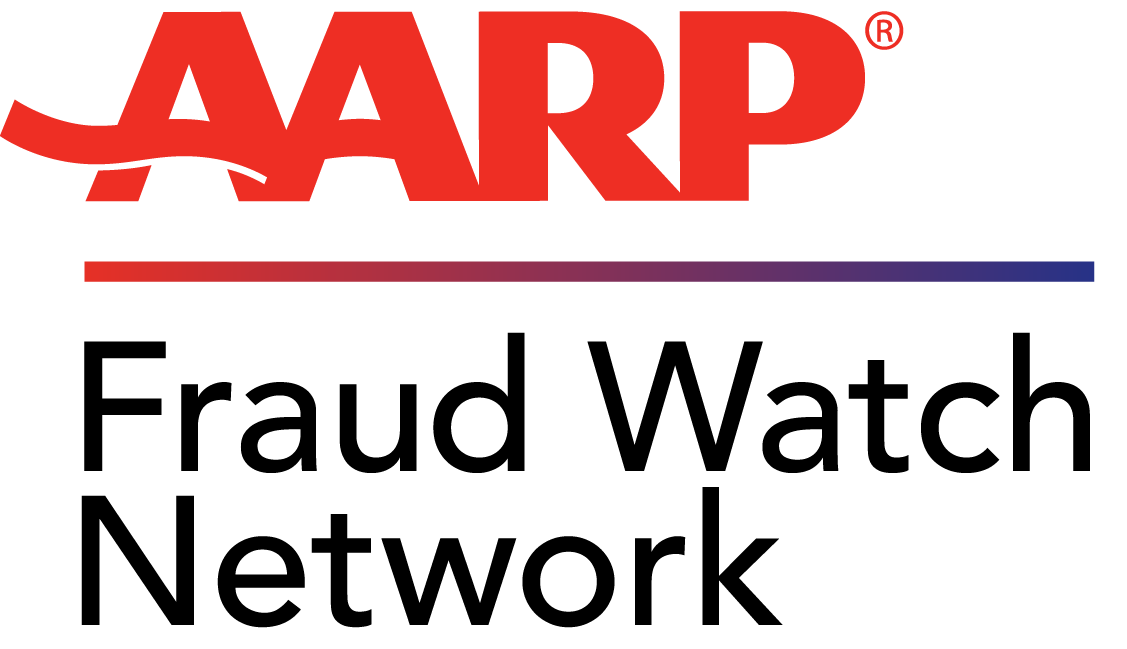AARP Hearing Center

Did you know that someone’s identity gets stolen every two seconds? The AARP Fraud Watch Network provides you with tips and resources to help you spot and avoid identity theft and fraud so you can protect yourself and your family. Our watchdog alerts will keep you up to date on con artists’ latest tricks. It’s free of charge for everyone: AARP members, non-members, and people of all ages. Be a fraud fighter! If you can spot a scam, you can stop a scam. Report scams to local law enforcement. Contact the AARP Fraud Watch Network at www.aarp.org/fraudwatchnetwork for more information on fraud prevention.
The AARP Fraud Watch Network is:
- An Educator: Get real-time alerts about the latest scams, tips on how to spot them, and the inside scoop on how con artists think so you can outsmart them before they strike.
- A Watchdog: Our nationwide scam tracking map gives you access to a network of people who've spotted scams and the opportunity to pass along your own experiences, so together we can beat con artists at their own game.
- A Resource: Get connected to a real live person trained in how to avoid fraud and advise you if you or a loved one has been scammed by calling our fraud hotline or attending a forum in your community.
- Free for Everyone: Anyone, of any age, can access our resources at no cost.

Social Security Scams
Acting Inspector General of Social Security Gale Stallworth Stone is warning citizens about phone call scams in which impersonators are copying SSA’s 1-800 number so that it appears as a legitimate call on a caller-ID screen. These scammers then identify themselves as SSA employees, request a person’s Social Security number and threaten to terminate the person’s benefits. If you receive a call like this, do NOT provide any personal information. Instead report this scheme by calling 1-800-269-0271 or visit the SSA Office of Inspector General website at: https://oig.ssa.gov/report.

W-2 and Tax Aid Scams
As the tax season approaches, individuals as well as small businesses need to be cautious of identity theft. Identity thieves use stolen Employer Identification Numbers to create fake W-2 Forms to file with fraudulent individual tax returns. Fraudsters also used these to open new lines of credit or obtain credit cards. Now, they are using company names to file fraudulent returns. Employers are warned to lookout for emails asking for sensitive W-2 information. If you believe you have been targeted by a tax scammer, you can report it to dataloss@irs.gov and StateAlert@tacadmin.org.

Advance Fee Scams
New college students are receiving admissions letters and scholarships this time of year. Among the letters from universities, many students may also receive offers for alleged student loans, scholarships, financial aid, and job offers. Some will charge a fee for things you could do by yourself, like filling out college applications, writing college essays, filling out the FAFSA (financial aid) form, or filling out job applications. Whether they end up providing the service once you’ve paid up is unsure, in many cases. If you hear any promotion of “just give us money and we’ll do the rest,” know that this is likely a scam. While some of the forms and applications can be difficult to get through, it is best to protect your personal information and fill them out yourself or with someone representing a reputable company.

Telephone Scams
Telephone scammers try to trick you out of your money or personal information by using many different tactics. Sometimes they offer or promise money, fake products, or trips, and sometimes threaten arrest if you don’t pay them. The best way to protect yourself is to hang up on these callers and ignore their messages. You can also register for the National Do Not Call Registry: 1-888-382-1222 or www.donotcall.gov and check with your telephone company about additional call blocking options.































































